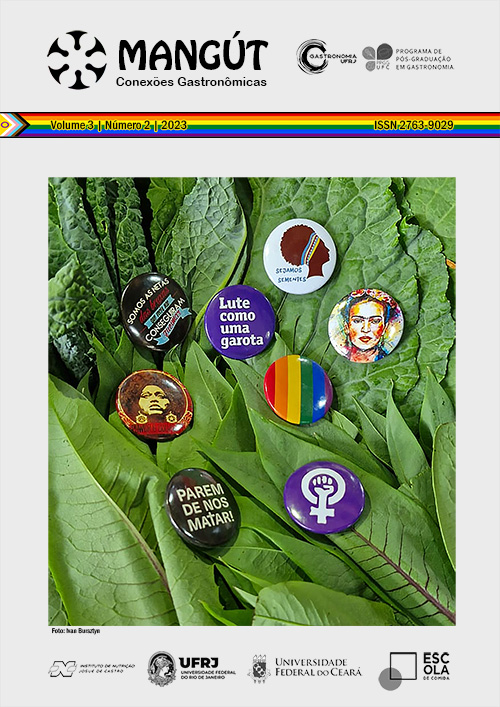The effects of the luteal phase on eating behavior
DOI:
https://doi.org/10.70051/mangt.v3i2.61347Keywords:
Gastronomy, Menstrual cycle, Food intake, Menstruation, NutrientsAbstract
The following work aims to understand the influence of the luteal phase of the menstrual cycle on the behavior and food choices of people who menstruate, in addition to analyzing nutritional issues, it seeks to understand the role of Gastronomy in this topic. The method used was qualitative and descriptive, based on scientific articles related to the theme. As a result, based on the investigation of biological and nutritional aspects, a table of recommended foods for this period is presented and the creation of a dish from these inputs, to enhance the pleasure and connection with food. The scarcity of Brazilian academic publications on the subject is evident, mainly in Gastronomy. It is concluded that the influence of hormonal variations on the menstrual cycle, in addition to being noticeable, plays a significant role in regulating metabolism and nutritional needs throughout the different phases of the cycle. This result paves the way for future studies that aim to comprehensively understand how these hormonal variations affect food preferences, energy metabolism and the body's response to different nutrients in the other phases of the menstrual cycle, making it possible to cover not only nutrients, but a greater variety of recommended foods and preparations from them.
Downloads
Published
Issue
Section
License
Copyright (c) 2024 Katharina Backes Costa Silva

This work is licensed under a Creative Commons Attribution 4.0 International License.
Autores que publicam nesta revista concordam com os seguintes termos:
- Autores mantém os direitos autorais e concedem à revista o direito de primeira publicação, com o trabalho simultaneamente licenciado sob a Licença Creative Commons Attribution que permite o compartilhamento do trabalho com reconhecimento da autoria e publicação inicial nesta revista.
- Autores têm autorização para assumir contratos adicionais separadamente, para distribuição não-exclusiva da versão do trabalho publicada nesta revista (ex.: publicar em repositório institucional ou como capítulo de livro), com reconhecimento de autoria e publicação inicial nesta revista.
- Autores têm permissão e são estimulados a publicar e distribuir seu trabalho online (ex.: em repositórios institucionais ou na sua página pessoal) a qualquer ponto antes ou durante o processo editorial, já que isso pode gerar alterações produtivas, bem como aumentar o impacto e a citação do trabalho publicado (Veja O Efeito do Acesso Livre).



